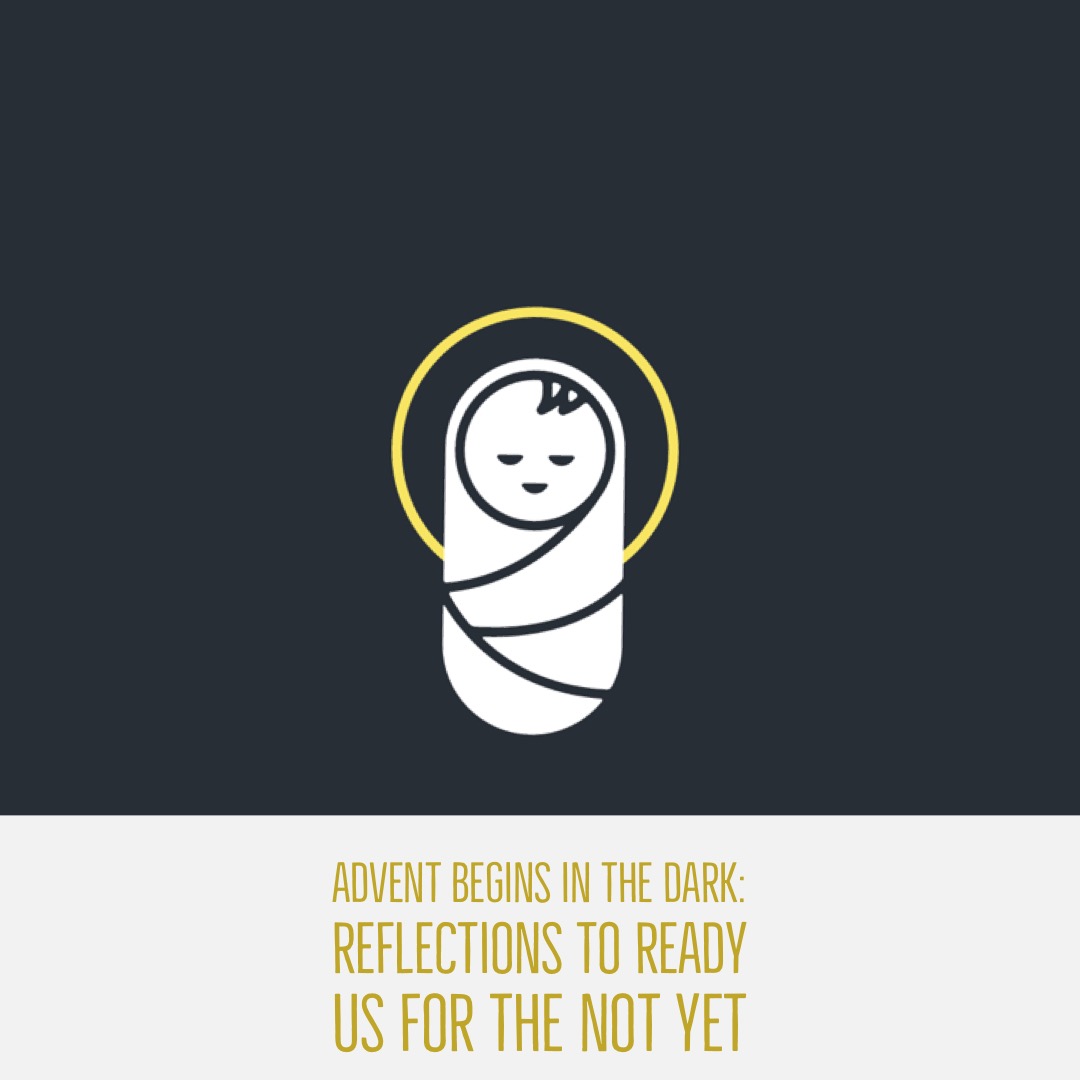
 Every year I try to remind Christians that at Advent we do not mimic those believers between the testaments who waited for the Lord’s first coming. We wait— wearied by this world we’ve made in our own image, we long— for his second Advent. In this season we locate ourselves not at the top of the Apostles’ Creed (I believe in Jesus Christ his only Son our Lord, who was conceived by the Holy Spirit, born of the virgin Mary…) but towards the botton of our beliefs (…who will come again to judge the quick and the dead…).
Every year I try to remind Christians that at Advent we do not mimic those believers between the testaments who waited for the Lord’s first coming. We wait— wearied by this world we’ve made in our own image, we long— for his second Advent. In this season we locate ourselves not at the top of the Apostles’ Creed (I believe in Jesus Christ his only Son our Lord, who was conceived by the Holy Spirit, born of the virgin Mary…) but towards the botton of our beliefs (…who will come again to judge the quick and the dead…).
During Advent, Christians anticipate not his incarnation but his imminent return.
“Until Christ comes back in final victory…” we pray during eucharist. Advent is the time when we anticipate his coming again with more than bread and wine; we look for his second Advent with the Word, with hymns, and with sober self-awareness that we’re a part of what’s wrong with the world. Every year I try to remind Christians what we’re actually doing during Advent, and every year I get accused that I’m a collared Eeyore deadset on ruining Christmas.
The bracing tone of Advent’s liturgy is so unmistakeable that our missing it must be willful. The popular Advent hymn Come, Thou Long-Expected Jesus, for example, sings frankly about our fears and sins while the other favorite, Come, O Come, Emmanuel, is a lamentation, speaking of mouring and lonely exile— and lonely exile is exactly how it feels to be a Christian in America watching border officers shoot tear gas and rubber bullets into children and mothers seeking, like Jesus’ own family, asylum. Meanwhile, the assigned lectionary readings for the first Sunday of Advent are not about the nativity at all; in fact, the Gospel lection is from Palm Sunday and it’s scary as crap:
“There will be signs in the sun, the moon, and the stars, and on the earth distress among nations confused by the roaring of the sea and the waves. People will faint from fear and foreboding of what is coming upon the world, for the powers of the heavens will be shaken. Then they will see ‘the Son of Man coming in a cloud’ with power and great glory. Now when these things begin to take place, stand up and raise your heads, because your redemption is drawing near.”
When Christ returns at the second Advent, he will not come as he come to us at the first Advent.
He will not come ignito in the flesh. He will not come in great humility. He will come with great glory.
And power.
Ricky Bobby isn’t the only one of us who prefers the baby Jesus in his golden fleece diapers. To face the prospect of Christ’s coming again is to reckon with the truth about ourselves. We are not blameless, as Thessalonians— another assigned Advent reading— leads us to conclude. There is no health in us, as the Book of Common Prayer confesses; such that, for the Lord to return and execute justice, as Jeremiah prophesies at Advent, is a frightening prospect. Measured against the Lord’s impending justice, we have no hope in our own righteousness.
Our only hope, as Jeremiah tells us at Advent, is that the Lord, Jesus Christ himself, is our righteousness. This “season of hope” has no content, therefore, apart from the honest acknowledgement of the hopelessness abounding in the world all around us and the conviction of our faith that, though none are righteous— not one— when he returns he will return already bearing in his risen body our every sin. He has absorbed the ultimate and final penalty for our every trespass. His coming again in judgement is not a coming for condemnation, for to those who’ve been clothed with him by baptism, he is our righteousness.
He is our righteousness.
We know—
His judgment is not condemnation; purgation is not perdition.
When Christians avoid the apocalyptic tenor of the Advent season and rush to the bright lights and to the manger and— let’s be honest— to sentimentiality, we forsake one of the key ways in which we imitate the incarnate Lord for the sake of the world.
In another assigned Advent text, the prophet Isaiah indicts his own religious community before casting judgment on the wider world for its sex-inflicted calamity:
“We have all become like one who is unclean, and all our righteous deeds are like a filthy cloth…”
A frightening, frequently misunderstood word, “wrath” in the Bible but names means God’s fierce, relentlessly determined opposition to the enslaving Power of Sin, which Christ has already defeated but whose reign— mysteriously so—has not yet ended. By calling his people’s best good deeds worse than bad, the prophet Isaiah places himself and his community before God’s wrath before the wider world. Isaiah, in other words, puts himself at the front of the line leading to God’s judgment seat.
The Apostle Paul— the same Paul who earlier assured us that there is no condemnation for those in Christ Jesus— tells the Romans near the end of his letter that “We shall all stand before the judgment seat of God.” Paul doubles down on it in verse 12 of Romans 14: “…each of us will be held accountable before God’s tribunal…” In fact, Paul repeats it almost word-for-word to the Corinthians: “We must all appear before the judgment seat of God.”
That reckoning, says the prophet Malachi in yet another assigned Advent reading, will be a refining— a refining fire, where our sinful self- even if we’re justified- will come under God’s final judgement and the the Old Adam still in us will be burnt away. The corrupt and petty parts of our nature will be purged and destroyed. The greedy and the bigoted and the begrudging parts of our nature will be purged and destroyed. The vengeful and the violent parts of our selves will be purged and destroyed. The unforgiving and the unfaithful parts of us, the insincere and the self-righteous and the cynical- all of it from all of us will be judged and purged and forsaken forever by the God whose wrath against Sin and its symptons is a refining fire.
But, the good news of the Gospel never ceases to be good news for us.
There is no condemnation for those who are simulataneously sinners and saints-in-Christ; therefore, purgation is not damnation.
Yet, as Paul testifies, this can only be known by hearing.
By faith.
Everyone in this culture of ours is sick with judging— judging and indicting, posturing and pouring contempt and pointing the finger at someone else.
At Advent, Christians mimic the prophet Isaiah, and we confess the chains we’ve chosen to a Pharoah called Sin and we put ourselves first under God’s judgment.
Because we’re the only ones who know— by faith— the Judge is not to be feared. As is said of Aslan in The Lion, the Witch, and the Wardrobe, our God is not safe but he is good. Christians at Advent long for Christ to come back in final victory, vanquishing Sin once for all— even, the sin in us. Because we know the Judge who was judged in our place in the first Advent is not to be feared in the second Advent, Christians can, like Isaiah, bear the judgment of God on behalf of a sinful world. As Peter writes in (yet another Advent epistle): “Judgment begins with the household of God.”
Christians speak all the time about imitating Christ, about being his hands and feet, and doing the things Jesus did. Most of the time we’re talking about serving the poor, forgiving another, or speaking truth to power.
But if the most decisive thing Jesus did was become a curse for us, taking on the burden of judgement for the guilty, then the primary way Christians imitate Christ is by bearing judgment on behalf of the guilty.
The primary way Christians imitate God-for-us is by bearing judgement for others.
When everything else is given over to nostalgia and sentiementality, this is our discipline this season of the second coming.
In a world sin-sick with judging and judging and judging, indicting and scapegoating and recriminating and casting blame— at Advent, Christians bear the good news that the one who came in humility and incognito will come again in great glory and with great power.
And we who are baptized and believing, we who are saved and sanctified— we who should be last under God’s judgment thrust ourselves to the front of the line and, like Jesus Christ, say “Me first.” Rather than judge we put ourselves before the Judgement Seat. Rather than condemning and critiquing, we confess.
We bear judgment rather than cast it because know— by faith— that we will come before the refining fire of God’s Judgment Seat at the second advent hearing the same words which began the first advent: “Do not be afraid.”
– Jason Micheli
